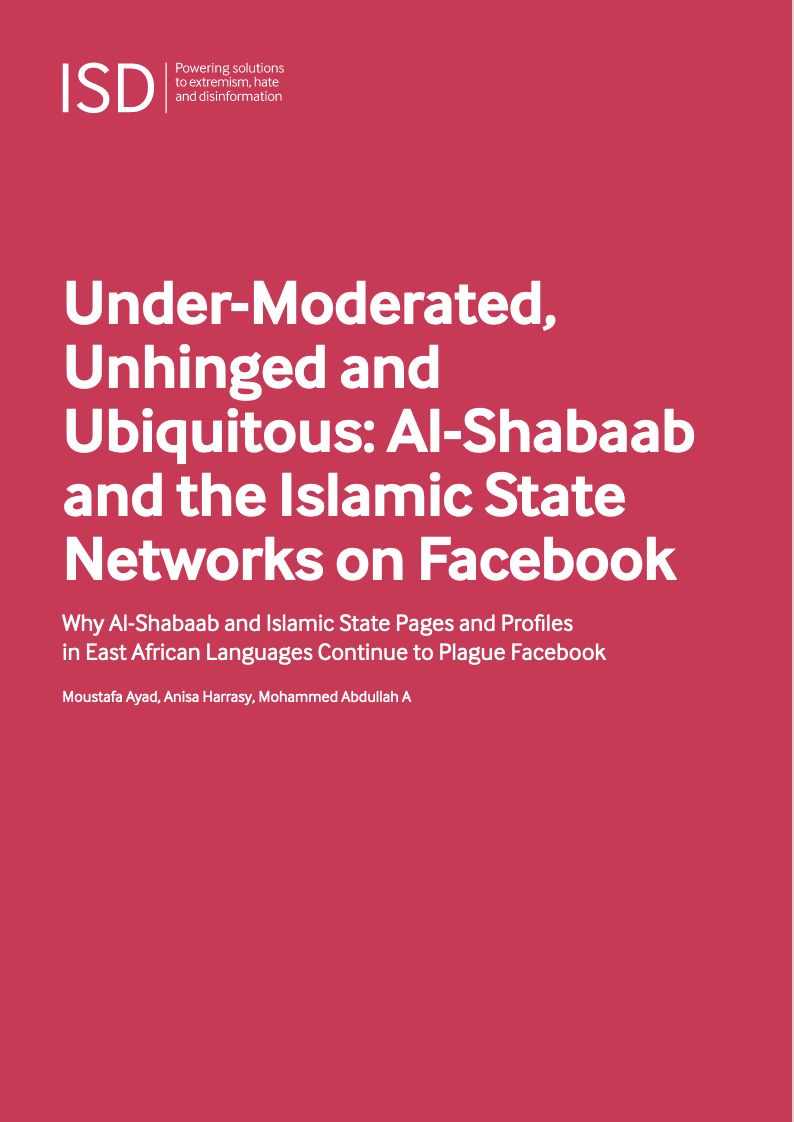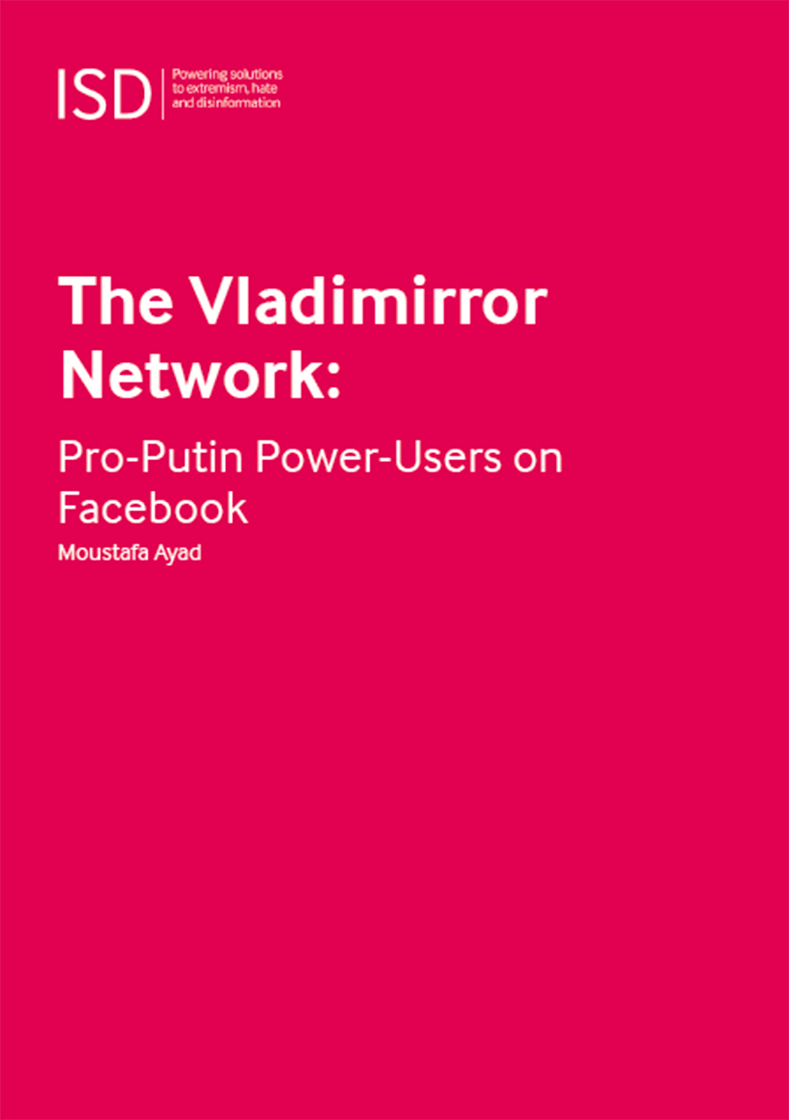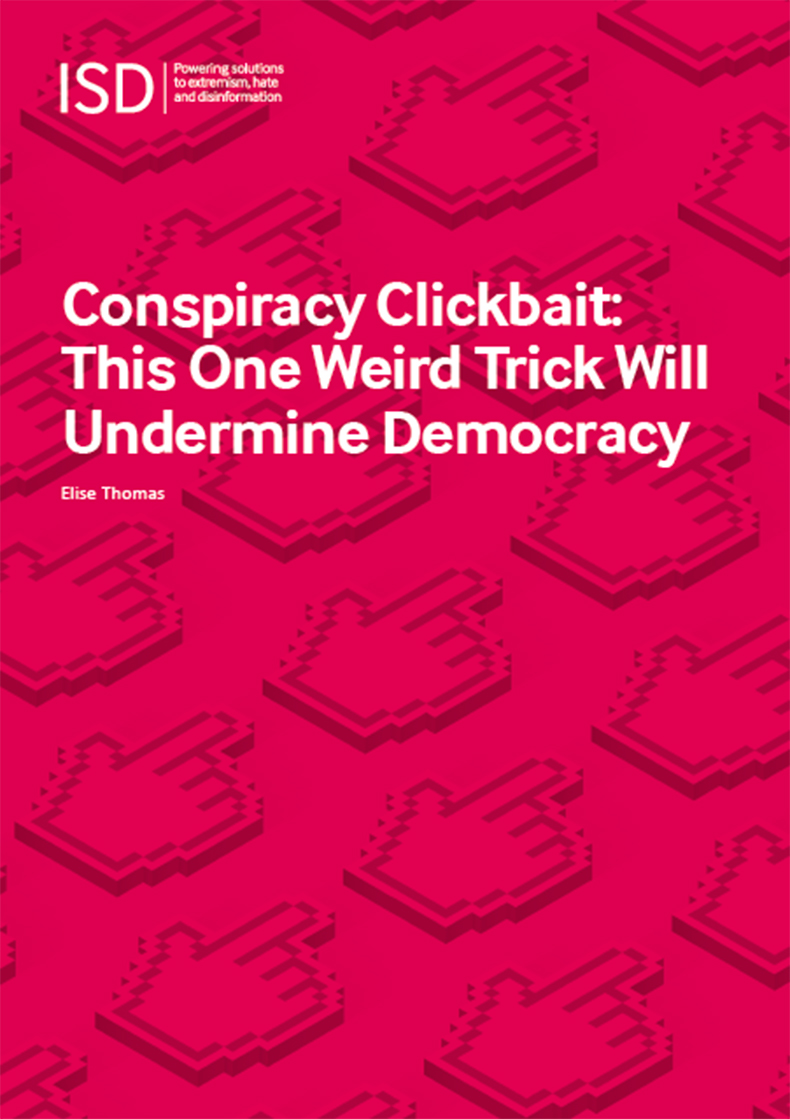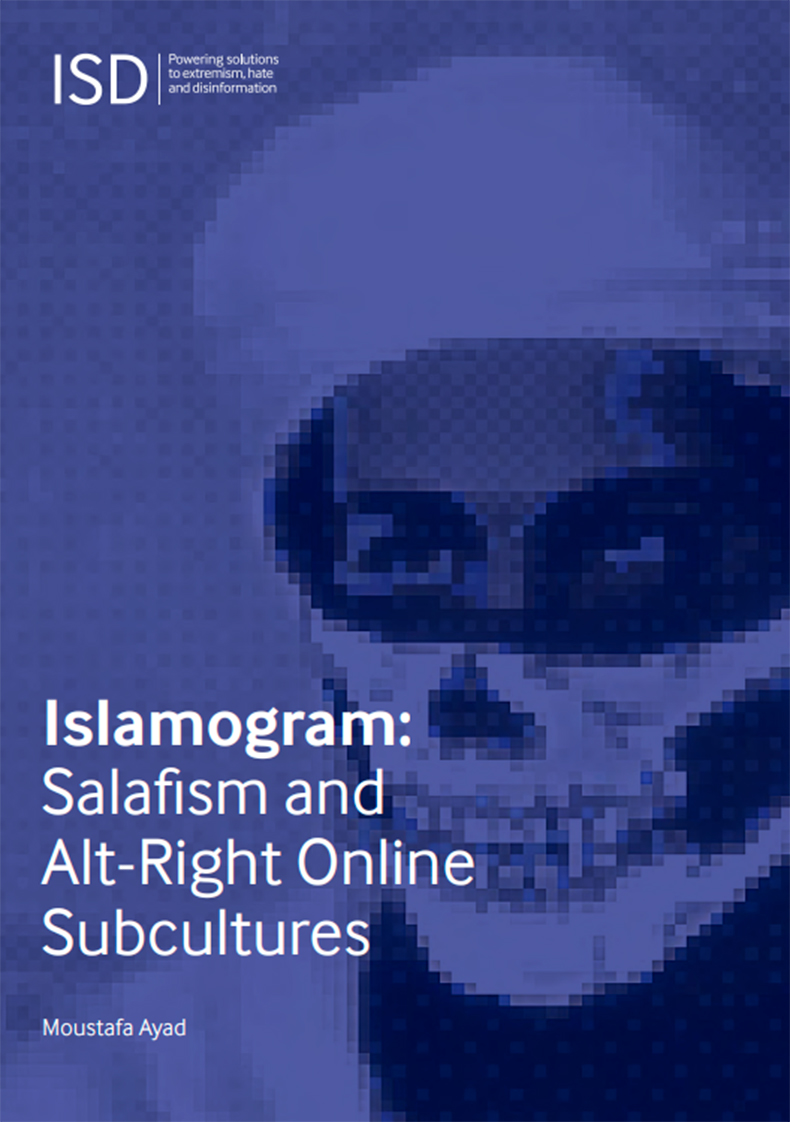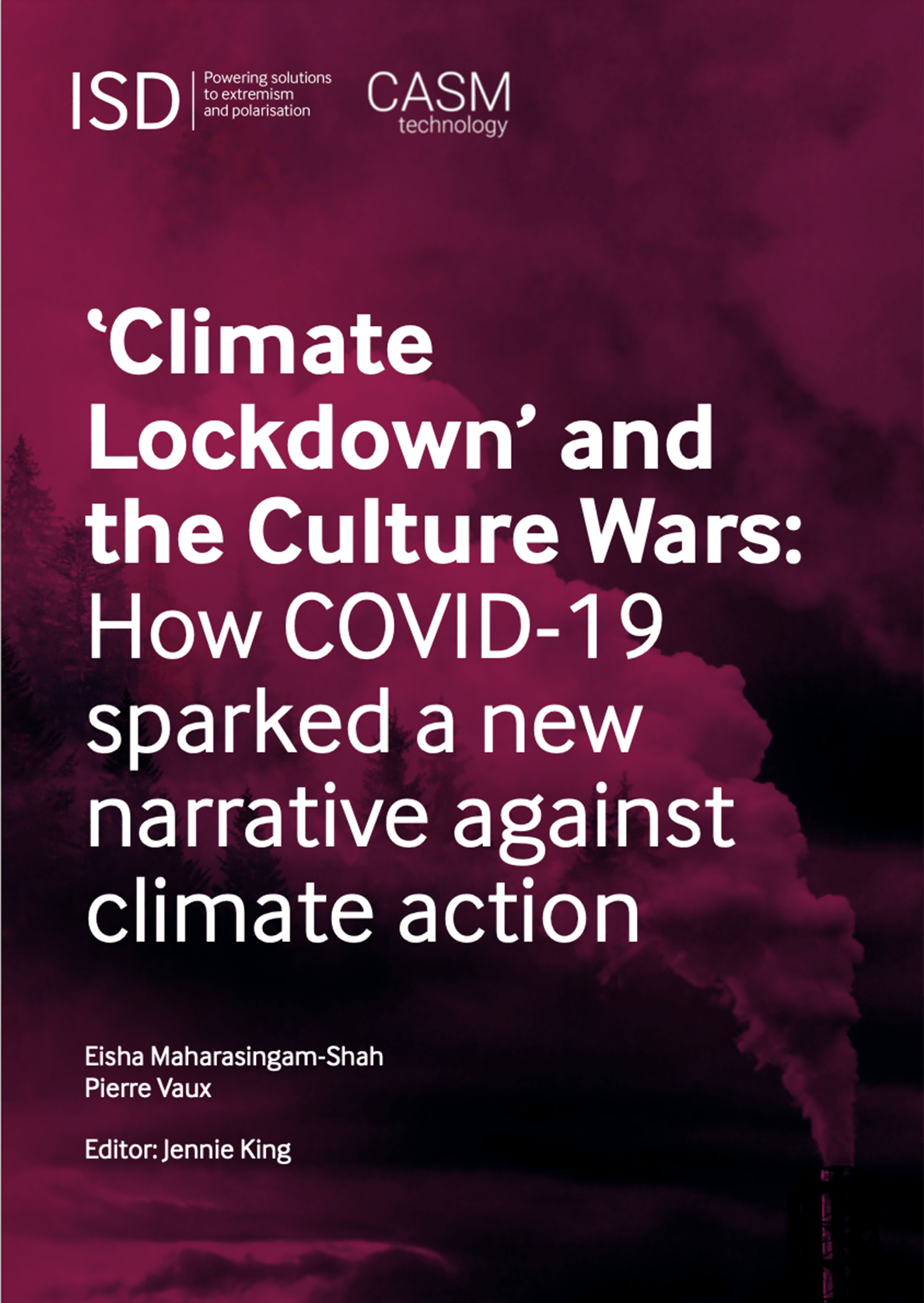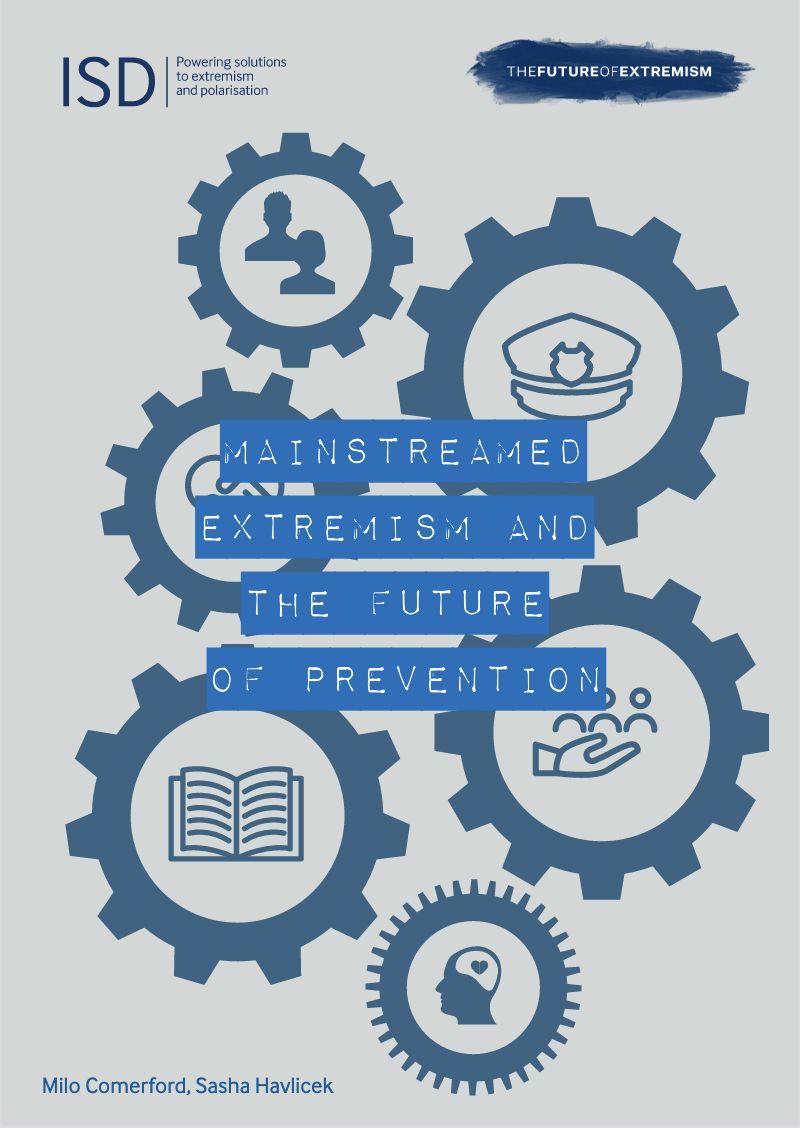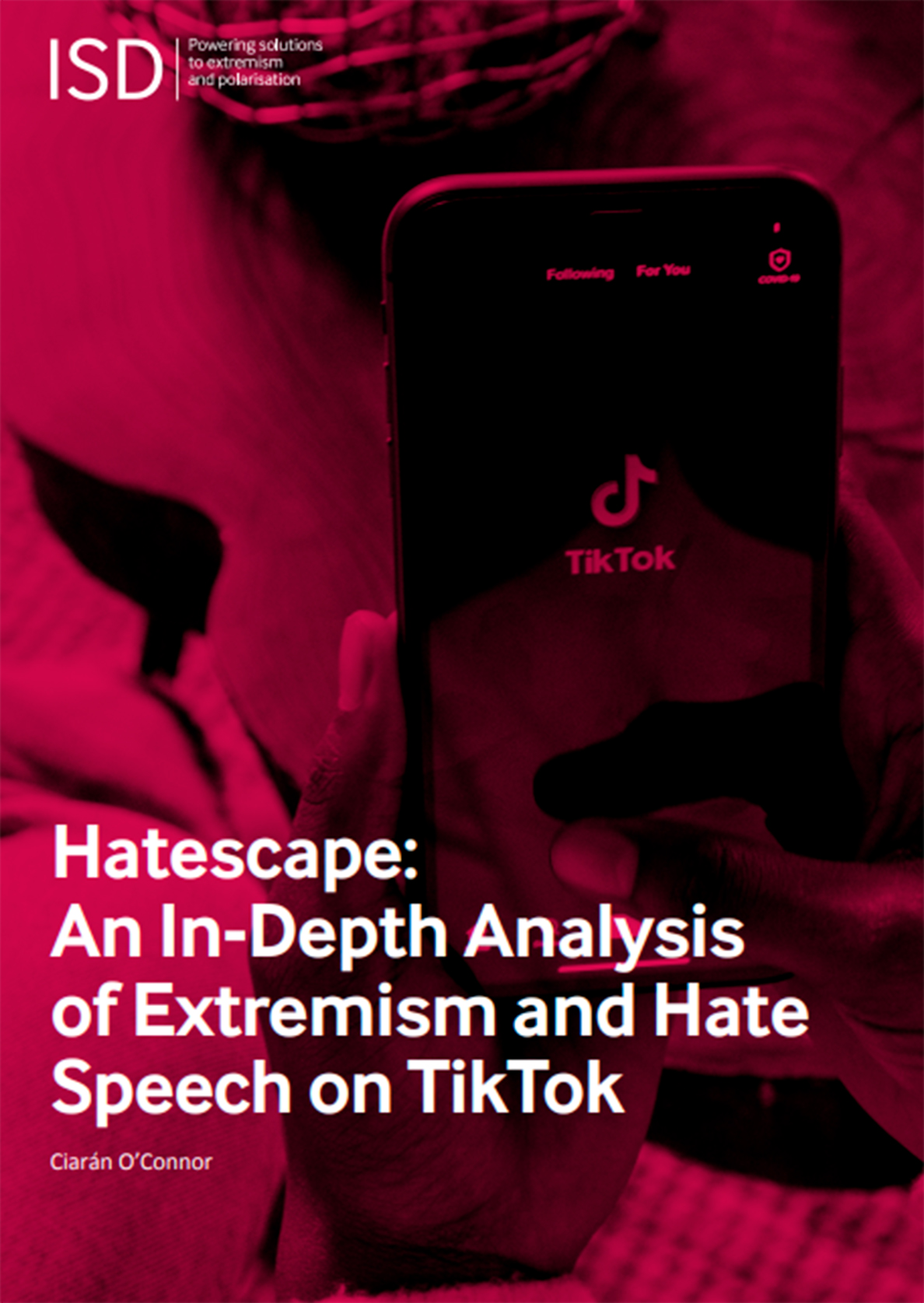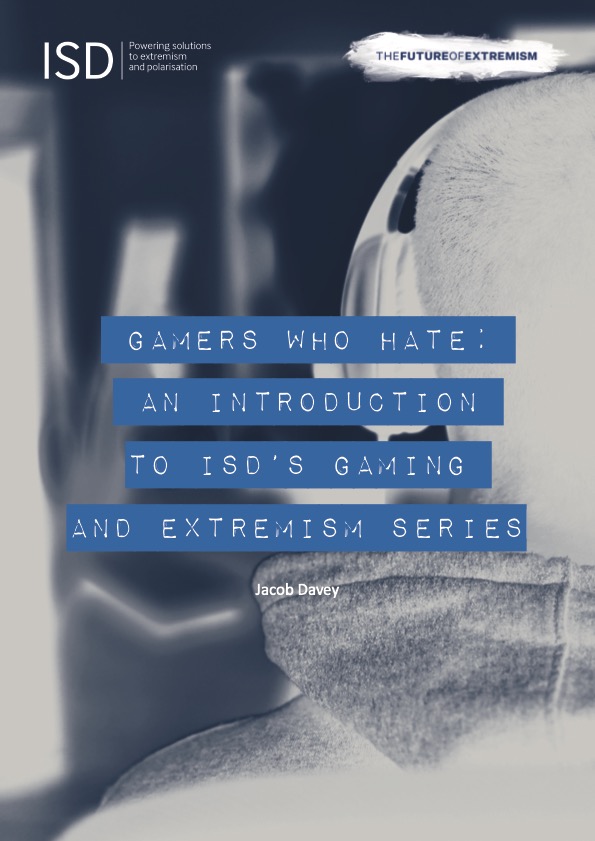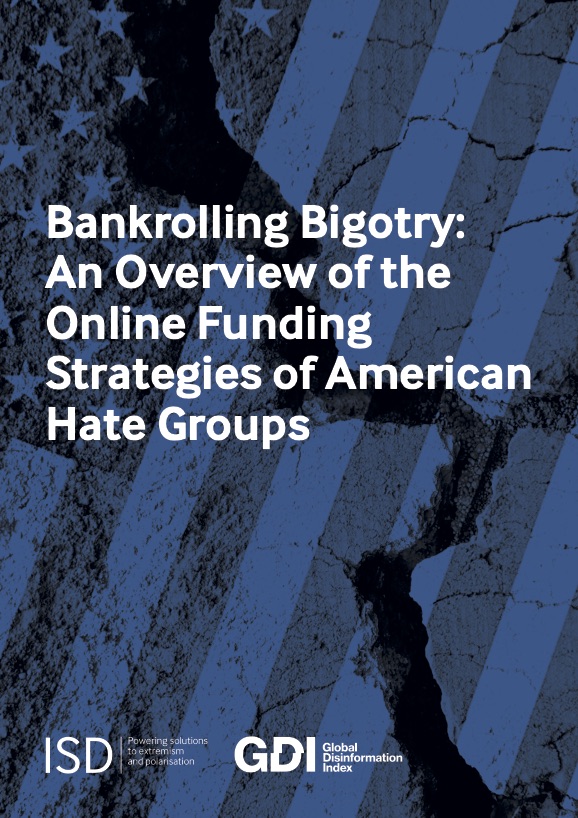COVID-19 Disinformation Briefing No.3
This report looks at disinformation surrounding COVID-19 contact tracing. ISD released a pioneering investigation with BBC Click, mapping the scale and nature of online disinformation around COVID-19 in the US, as well as its co-option by far right actors. The investigation was featured on BBC World’s Click programme, as well as on the BBC News website.

